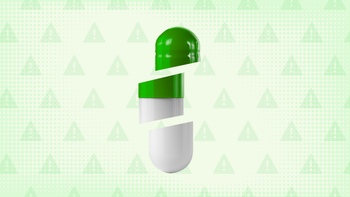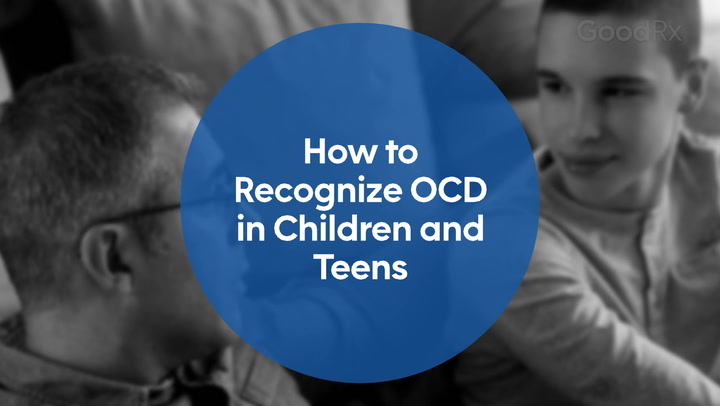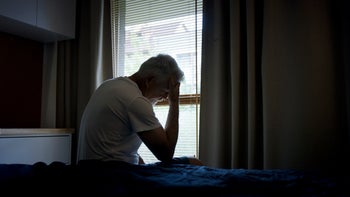
Real-Event OCD: What to Know About This Type of Obsessive-Compulsive Disorder
Key takeaways:
Real-event OCD is a type of obsessive-compulsive disorder that involves doubts about the details and consequences of a past event. This can make real-event OCD particularly distressing.
People with real-event OCD have extreme and intrusive worries about the consequences of past actions. They might worry that they’ve caused someone harm or that they’ve broken the law.
In response, people with real-event OCD perform compulsions such as reviewing their memories or inappropriately confessing to perceived crimes.
With treatment — usually a combination of medication and exposure and response prevention (ERP) therapy — people with real-event OCD can manage their symptoms and thrive.
Table of contents

We’ve all felt regret or guilt about something we’ve done in the past. After all, we’re human — and all humans make mistakes.
For most people, these regretful memories are manageable. They may come up now and again. But for the most part, you’re able to function despite these mistakes.
For people with a type of OCD called real-event OCD, it’s not so simple. They have obsessive thoughts and worries about past events in their lives. They become overwhelmed with shame and regret and engage in compulsive behaviors to try to put their minds at ease.
Although real-event OCD isn’t likely to go away on its own, there are effective treatments that can help you overcome these symptoms.
What is real-event OCD?
Real-event OCD is a common subtype or theme of OCD.
People with real-event OCD have obsessions and compulsions about an actual event in their past. These events could have happened in the recent past, including as recently as earlier that day, or a long time ago. This subtype of OCD is unique because most people with OCD have obsessions and compulsions about something bad that may happen in their future.
If you live with real-event OCD, you spend a lot of time trying to gain absolute certainty about something that happened. You may worry intensely about what happened and whether you may have caused someone harm.
It’s normal for people to feel regret, embarrassment, or even guilt about some things in their past. But if you have real-event OCD, you ruminate over these events and get locked in a cycle of trying to gain 100% certainty that you did nothing wrong.
Real-event OCD can feel scary because the event actually happened. This may feel like “evidence” that your obsessions are true. The fact that it was a real event could reinforce your obsessions.
Symptoms of real-event OCD
All subtypes of OCD, including real-event OCD, are characterized by two core symptoms: obsessions and compulsions. In real-event OCD, these symptoms can manifest in unusual ways.
People with real-event OCD can experience these symptoms about any past event. Even events that seem innocuous on the surface can trigger OCD obsessions and compulsions.
Real-event OCD obsessions
Some obsessions or intrusive thoughts that someone with real-event OCD may experience include:
Worrying that you did something offensive or harmful in the past
Worrying that you did something against the law
Enduring extreme and overwhelming feelings of guilt and shame over a past event
Having intrusive thoughts that you’re remembering things incorrectly
Worrying that something you said or did has caused someone irreparable harm
Having extreme fear of the consequences of past actions, such as getting “canceled”
Real-event OCD compulsions
When someone with real-event OCD experiences these intrusive worries, they feel compelled to perform a compulsion to neutralize their fear.
Some common compulsions associated with real-event OCD include:
Reassurance-seeking, which involves repeatedly seeking reassurance from others that you aren’t a bad person or that the event didn’t happen the way you remember it
Repeatedly punishing yourself for past actions
Unnecessarily and repeatedly apologizing for or confessing to past actions
Mentally reviewing memories for certainty about what happened
Looking up laws or contacting law enforcement to ask about potential consequences of past actions
Compulsively looking for ways to prove to yourself that you are a good person
Avoiding places, people, or things that remind you of the past event
Example of real-event OCD
Here’s an example of what real-event OCD might look like. Perhaps someone said something unkind to a classmate as a child. If the person has real-event OCD, they’re unable to let the guilt go.
They spend much of their waking time thinking about this event. They may have thoughts such as, “Does this mean I’m a terrible person?” and “What if this friend has become addicted to drugs or is suicidal as an adult because of that thing I said to them?”
They may feel so distressed by these thoughts that they repeatedly reach out for reassurance that they haven’t ruined this person’s life. They may go over their memories repeatedly to try to remember what, exactly, they said. They may ask their friends and family members to reassure them that they aren’t a terrible person.
Treatment options for real-event OCD
Fortunately, there are effective treatment options that can help you recover from any type of OCD, including real-event OCD. Although OCD is a chronic condition, meaning there’s no cure, many people manage symptoms so well that they live flourishing, fulfilling, and successful lives.
Therapy
The first-choice OCD treatment is a type of therapy called exposure and response prevention (ERP).
During ERP, you are asked to intentionally expose yourself to obsessions. For example, in real-event OCD, you might write a story about the event that’s haunting you or listen to a story about someone who was punished for a similar event.
Your therapist will help you resist reacting to these obsessions with compulsions. For example, you might listen to someone else’s story and resist the compulsion to check the internet to make sure that you didn’t break the law.
By repeating this process, you may free yourself from the cycle of obsessions and compulsions.
Other methods that may be effective for real-event OCD include:
Transcranial magnetic stimulation (TMS), a type of brain stimulation therapy
Medication
Psychiatric medications are very effective for people with OCD. Research shows that around 70% of people with OCD experience relief from their symptoms with medication.
The most effective type of medication for OCD is a class of antidepressants called selective serotonin reuptake inhibitors (SSRIs). Specifically, an SSRI called fluvoxamine (Luvox) has been shown to be effective.
Other medications that can help reduce OCD symptoms include:
Fluoxetine (Prozac)
Paroxetine (Paxil)
Sertraline (Zoloft)
Clomipramine (Anafranil)
Support and resources for people living with OCD
Community support can also be an essential part of OCD recovery. The following organizations offer support groups, provider directories, or educational resources about OCD:
The bottom line
Real-event OCD can be terrifying to live with. It can make you question your memories and fill you with guilt and shame about events in your past. But all types of OCD, including real-event OCD, can be treated.
Staying in the cycle of obsessions and compulsions isn’t helpful. The right treatment — usually a combination of exposure therapy and medication — can help you get out of this cycle, manage intrusive thoughts, and live a happy and fulfilling life.
Why trust our experts?



References
Anxiety & Depression Association of America. (2022). Treatments for OCD.
Gots, L. S. (2019). The ‘reality’ of real-life OCD. Anxiety & Depression Association of America.
Quinlan, K. (n.d.). Real-event OCD: What it is and how to treat it. Therapy & Counseling for OCD & Eating Disorders.
Law, C., et al. (2019). Exposure and response prevention in the treatment of obsessive-compulsive disorder: Current perspectives. Psychology Research and Behavior Management.
O’Connor, K., et al. (1995). Inference processes in obsessive-compulsive disorder: Some clinical observations. Behaviour Research and Therapy.
Pittenger, C., et al. (2014). Pharmacological treatment of obsessive-compulsive disorder. Psychiatric Clinics of North America.
Society of Clinical Psychology. (n.d.). Psychological treatments.
Thyer, B. A. (2008). Remorse and guilt in obsessive-compulsive disorder. The Psychotherapy Patient.
For additional resources or to connect with mental health services in your area, call SAMHSA’s National Helpline at 1-800-662-4357. For immediate assistance, call the National Suicide Prevention Lifeline at 988, or text HOME to 741-741 to reach the Crisis Text Line.

























